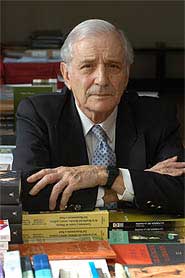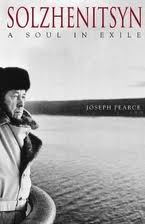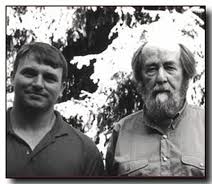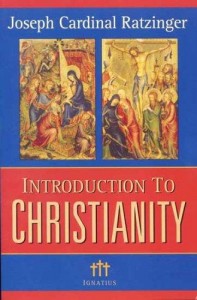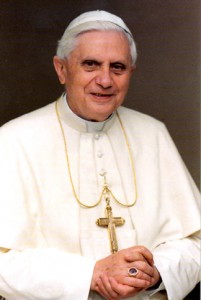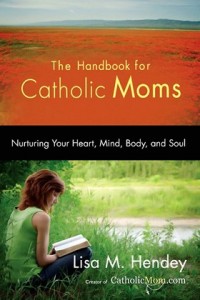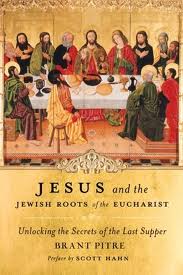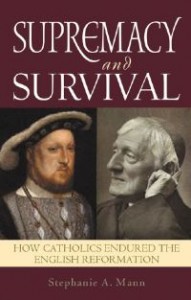What a great read and so very timely! Author Nigel Cliff’s fantastic “The Last Crusade: The Epic Voyages of Vasco da Gama” 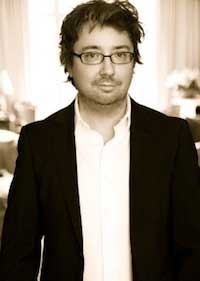 is now available in QP.  Nigel chronicles the clash of the Islamic East and the Christian West in a way I that I had not experienced before. Tracing the roots of the Islamic experience and it’s occupation of the Iberian Peninsula helps with the needed background for this story.  Then he takes us on the thrilling adventures of the 28 year Portuguese explorer who set out for the elusive sea-based trade route to the east which would not only allow Christendom to penetrate into the heart of India, but would allow a Crusade to halt the economic grip of the East from crushing the West in Europe.  A contemporary of Christopher Columbus, it seems as though the tale and accomplishments of Vasco da Gama are mostly overshadowed today…but no longer thanks to the work of Nigel Cliff.  A terrific non-fiction historical read that illuminates the events of today.
is now available in QP.  Nigel chronicles the clash of the Islamic East and the Christian West in a way I that I had not experienced before. Tracing the roots of the Islamic experience and it’s occupation of the Iberian Peninsula helps with the needed background for this story.  Then he takes us on the thrilling adventures of the 28 year Portuguese explorer who set out for the elusive sea-based trade route to the east which would not only allow Christendom to penetrate into the heart of India, but would allow a Crusade to halt the economic grip of the East from crushing the West in Europe.  A contemporary of Christopher Columbus, it seems as though the tale and accomplishments of Vasco da Gama are mostly overshadowed today…but no longer thanks to the work of Nigel Cliff.  A terrific non-fiction historical read that illuminates the events of today.
[powerpress]
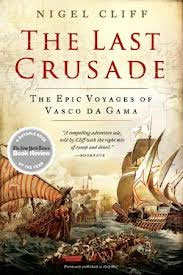 You can find the book here
You can find the book here
“A useful addition to a continuing lively discussion of Christianity and Islam, situated both in respect of religions and culture, as well as empires and trade.†(Kirkus )
Tags: age of exploration, crusade, Europe, Iberian Peninsula, islam, QP, western civilization, work
This entry was posted on Friday, September 14th, 2012 at 1:11 am
You can follow any responses to this entry through the RSS 2.0 feed.
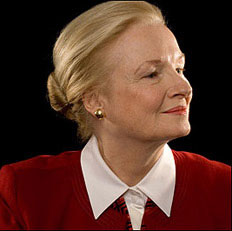
It was with great joy to be able to speak with Mary Ann Glendon about  “The Forum and the Tower: How Scholars and Politicians Have Imagined the World, from Plato to Eleanor Roosevelt”.  A fascinating book that chronicles not only the thoughts, but also the lives of  12 notable philosophers and/or statesmen throughout history.  The “and/or” is important, because not all can can successfully combine both.  In fact, only  two in this particular work, are found to be that complete “Philosopher Statesman”.  Why is that so?  Why is difficult for one who develops a theory to put it into practice?  And on personal level on my part, that this is one of the most enjoyable and engaging converstations I’ve been blessed to have in this particular “forum”.  We also discuss Blessed John Paul II and Pope Benedict XVI and their influence in today’s world.
Mary Ann Glendon is Learned Hand Professor of Law at Harvard Law School, and is a former United States Ambassador to the Vatican. She holds A.B., J.D., and M.C.L. degrees from the University of Chicago. In 2004, Pope John Paul II named her as the first woman to serve as President of the Pontifical Academy of Social Sciences.
[powerpress]
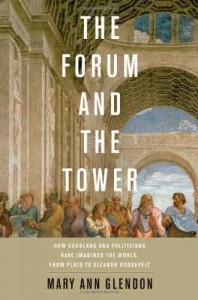 You can find the book here
You can find the book here
About the Book:
As Aristotle noted long ago, two very different and sometimes incompatible ways of life—the political and the philosophical—exert a powerful pull on the ambitious and talented members of any society. Mary Ann Glendon, who teaches at Harvard Law School, says that she sees this double attraction in her students. Some go into politics, but many turn away, fearful of the compromises and corruptions of power. Such students may go on to become teachers and scholars, but they never quite give up on the idea of “making a difference†in the wider, public world, even if they aren’t quite sure how to do it. Ms. Glendon’s The Forum and the Tower profiles 12 figures in Western history who struggled—not always successfully—with the conflict between an active life and a contemplative one, between ‘life in the public forum and life in the ivory tower.’… The Forum and the Tower is a wise exploration of the eternal tension between action and thought.
— Brian C. Anderson, The Wall Street Journal
Tags: catholic, catholic podcast, catholic prayer, catholic social teaching, cathollc spirituality, Harvard Law School, joy, Mary Ann Glendon, work
This entry was posted on Friday, May 18th, 2012 at 6:44 am
You can follow any responses to this entry through the RSS 2.0 feed.
[powerpress = “Vatican_Radio”]
While the rest of the world was seething with the war and its evils in a lonely corner of Europe 1917 three young children had a vision of Our Lady.That apparition sparked off the devotion to Our Lady of Fatima, an inspiration for millions to work and
pray for peace.
Since that time not only have millions prayed the Rosary and done penance but have made the pilgrimage to Fatima.
Among these Blessed John Paul II who shortly after his visit there during the Jubilee Year, in the presence of the statue representing Our Lady of Fatima entrusted the third millennium to her immaculate heart.
Monsignor Philip Whitmore brings us the hymn the crowds sang on that occasion. One which tells the story of those three young shepherd children….
A programme produced by Veronica Scarisbrick.
Tags: catholic, catholic podcast, catholic prayer, cathollc spirituality, children, Europe, Monsignor Philip Whitmore, vatican radio, work
This entry was posted on Friday, May 11th, 2012 at 7:48 am
You can follow any responses to this entry through the RSS 2.0 feed.
What a delight to be joined once again by Vivian Dudro to discuss the work of Spanish novelist Jose Luis Olaizola
and his book “Fire of Love: A Historical Novel on the Life St. John of the Cross”!  Olaizola is an award-winning Spanish writer, who is known for his acclaimed works on great historical figures such as El Cid, Hernan Cortes, Bartolome de las Casas, and Patricio Escobar.  In this book, he richly offers the life of the the great Spanish mystical doctor of the Church, St. John of the Cross.[powerpress]
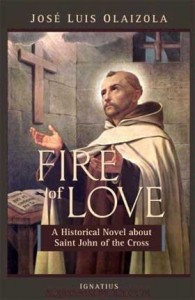 You can find the book here
You can find the book here
This historical novel paints a striking portrait of one of the most revered saints in history, in a landscape that makes the life and times of John of the Cross relevant to our own age. Here is an extraordinary adventure that explores the thorny challenges that every soul must face: avoiding the trappings of this world that lead to darkness, and embracing the radiance of the fire of Divine Love. Having performed the life of this great saint as an actor, I found Jose Luis Olaizola’s portrayal very true to the passion and dramatic intensity of this great mystic. Fire of Love rekindled in me the fire ignited by Saint John of the Cross in his poetic plea, ‘Love Him intensely, as He deserves to be loved.’ May all who read this literary work examine their own souls profoundly, in order to have the greatest of all adventures – finding God Himself. —Leonardo Defilippis, Film Actor & Director, John of the Cross
Tags: catholic, catholic podcast, catholic prayer, cathollc spirituality, Cross Olaizola, doctor of the church, ignatius press, Jose Luis Olaizola, Leonardo Defilippis, mystic, st. john of the cross, work
This entry was posted on Friday, April 20th, 2012 at 10:40 am
You can follow any responses to this entry through the RSS 2.0 feed.
Episode 10 – Great Works in Western Literature with Joseph Pearce – William Shakespeare
Arguably Shakespeare’s finest and most important play, Hamlet is also one of the most misunderstood masterpieces of world literature. “To be or not to be”, may be the question, but the answer has eluded many generations of critics. What does it  mean “to be”? And is everything as it seems to be?
mean “to be”? And is everything as it seems to be?
Probably the darkest of all Shakespeare’s plays, Macbeth is also one of the most challenging. Is it a work of nihilistic despair, “a tale told by an idiot, full of sound and fury, signifying nothing”, or is it a cautionary tale warning of the dangers of Machiavellianism and relativism? Does it lead to hell and hopelessness, or does it point to a light beyond the darkness?
[powerpress]

 Â Based on the Ignatius Critical Edition, this series examines, from the Judeo-Christian perspective, the life, the times, and influence of authors of great works in literature .
 Based on the Ignatius Critical Edition, this series examines, from the Judeo-Christian perspective, the life, the times, and influence of authors of great works in literature .
Joseph Pearce is currently the Writer-in-Residence and Visiting Fellow at Thomas More College of Liberal Arts in Merrimack, New Hampshire. He is also Visiting Scholar at Mount Royal Academy in Sunapee, New Hampshire. He is also Visiting Scholar at Mount Royal Academy in Sunapee, New Hampshire. He is  co-editor of the Saint Austin Review (or StAR), an international review of Christian culture, literature, and ideas published in England (Family Publications) and the United States (Sapientia Press). He is also the author of many books, including literary biographies of Solzhenitsyn, J. R. R. Tolkien, C. S. Lewis, G. K. Chesterton, and Oscar Wilde.
To learn more about the authors and titles available in the Ignatius Critical Editions
Tags: ave maria university, catholic, catholic podcast, catholic prayer, cathollc spirituality, hamlet, hell, joseph pearce, literary biographies, literature, macbeth, sapientia press, william shakespeare, William Shakespeare Arguably Shakespeare, work
This entry was posted on Friday, November 4th, 2011 at 6:27 am
You can follow any responses to this entry through the RSS 2.0 feed.
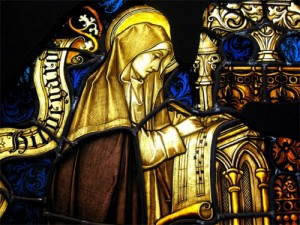 800+Â years later,
800+Â years later,
it still holds up….
now that’s the work of
the Holy Spirit!
Tags: catholic, catholic podcast, catholic prayer, cathollc spirituality, chant, mystic, mystic of the Church, st hildegard of bingen, st. hildegarde, women of the middle ages, work
This entry was posted on Saturday, September 17th, 2011 at 5:00 pm
You can follow any responses to this entry through the RSS 2.0 feed.
The revised and updated version of what I think is a classic work, “Solzhentisyn: A Soul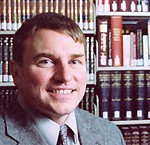 in Exile”, is a tremendous gift to us all.  With all of the impressive clarity and tender insight you have come to expect from Joseph Pearce, this biography of the great Russian writer covers the lifespan of this incredible figure of the 20th century.   Joseph goes to the “heart” of the man, his Christian faith. With that illumination, he sheds a whole new understanding of his contribution to literary thought, Catholic Social Doctrine, and the value and dignity of each human person.  He allows Alexander Solzhenitsyn to speak for himself, and what he has to say is so important it shouldn’t be missed.
in Exile”, is a tremendous gift to us all.  With all of the impressive clarity and tender insight you have come to expect from Joseph Pearce, this biography of the great Russian writer covers the lifespan of this incredible figure of the 20th century.   Joseph goes to the “heart” of the man, his Christian faith. With that illumination, he sheds a whole new understanding of his contribution to literary thought, Catholic Social Doctrine, and the value and dignity of each human person.  He allows Alexander Solzhenitsyn to speak for himself, and what he has to say is so important it shouldn’t be missed.
[powerpress]
Tags: Alexander Solzhenitsyn, ave maria university, catholic, catholic podcast, catholic prayer, catholic social doctrine, cathollc spirituality, human person, ignatius press, joseph pearce, sa, work
This entry was posted on Monday, June 20th, 2011 at 7:02 am
You can follow any responses to this entry through the RSS 2.0 feed.
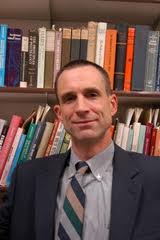 Episode 1 – What is Christian Apologetics? Who was St. Thomas Aquinas, his life, his times, and his contribution. What is “theology”? What is the “Summa”?
Episode 1 – What is Christian Apologetics? Who was St. Thomas Aquinas, his life, his times, and his contribution. What is “theology”? What is the “Summa”?
[powerpress]
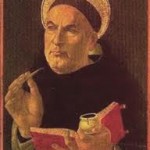 Question 1. article 1Â The nature and extent of sacred doctrine
Question 1. article 1Â The nature and extent of sacred doctrine
Whether, besides philosophy, any further doctrine is required?
Objection 1: It seems that, besides philosophical science, we have no need of any further knowledge. For man should not seek to know what is above reason: “Seek not the things that are too high for thee” (Ecclus. 3:22). But whatever is not above reason is fully treated of in philosophical science. Therefore any other knowledge besides philosophical science is superfluous.
Objection 2: Further, knowledge can be concerned only with being, for nothing can be known, save what is true; and all that is, is true. But everything that is, is treated of in philosophical science—even God Himself; so that there is a part of philosophy called theology, or the divine science, as Aristotle has proved (Metaph. vi). Therefore, besides philosophical science, there is no need of any further knowledge.
On the contrary, It is written (2 Tim. 3:16): “All Scripture, inspired of God is profitable to teach, to reprove, to correct, to instruct in justice.” Now Scripture, inspired of God, is no part of philosophical science, which has been built up by human reason. Therefore it is useful that besides philosophical science, there should be other knowledge, i.e. inspired of God.
I answer that, It was necessary for man’s salvation that there should be a knowledge revealed by God besides philosophical science built up by human reason. Firstly, indeed, because man is directed to God, as to an end that surpasses the grasp of his reason: “The eye hath not seen, O God, besides Thee, what things Thou hast prepared for them that wait for Thee” (Is. 66:4). But the end must first be known by men who are to direct their thoughts and actions to the end. Hence it was necessary for the salvation of man that certain truths which exceed human reason should be made known to him by divine revelation. Even as regards those truths about God which human reason could have discovered, it was necessary that man should be taught by a divine revelation; because the truth about God such as reason could discover, would only be known by a few, and that after a long time, and with the admixture of many errors. Whereas man’s whole salvation, which is in God, depends upon the knowledge of this truth. Therefore, in order that the salvation of men might be brought about more fitly and more surely, it was necessary that they should be taught divine truths by divine revelation. It was therefore necessary that besides philosophical science built up by reason, there should be a sacred science learned through revelation.
Reply to Objection 1: Although those things which are beyond man’s knowledge may not be sought for by man through his reason, nevertheless, once they are revealed by God, they must be accepted by faith. Hence the sacred text continues, “For many things are shown to thee above the understanding of man” (Ecclus. 3:25). And in this, the sacred science consists.
Reply to Objection 2: Sciences are differentiated according to the various means through which knowledge is obtained. For the astronomer and the physicist both may prove the same conclusion: that the earth, for instance, is round: the astronomer by means of mathematics (i.e. abstracting from matter), but the physicist by means of matter itself. Hence there is no reason why those things which may be learned from philosophical science, so far as they can be known by natural reason, may not also be taught us by another science so far as they fall within revelation. Hence theology included in sacred doctrine differs in kind from that theology which is part of philosophy.
For an online version of St. Thomas Aquinas’ “Summa” click here
“Christian Apologetics with Dr. R. R. Reno” explores numerous facets of faith and reason in the life of the Church and the world. Grounded on the work of giants, such as St. Thomas Aquinas, St. Bonaventure, Blessed John Newman, soon-to-be Blessed John Paul II, G. K. Chesterton, Blaise Paschal and Stephen Barr, Dr. Reno helps us to open our minds to make the journey to our hearts.
R. R. Reno is the editor at First Things: A Journal of Religion, Culture, and Public Life, and Professor of Theology, currently on leave from Creighton University. His theological work has been published in many academic journals. Essays and opinion pieces on religion, public life, contemporary culture, and current events have appeared in Commentary, and the Washington Post. In Fighting the Noonday Devil Reno suggests that putting ourselves at the disposal of what is real is what trains us for true piety. His other recent books include Genesis: Brazos Theological Commentary on the Bible and Sanctified Vision: An Introduction to Early Christian Interpretation of the Bible.
Tags: Blessed John Newman, catholic, catholic podcast, catholic prayer, cathollc spirituality, creighton university, faith, first things, r r reno, summa theologica, thomas aquinas, work
This entry was posted on Wednesday, May 4th, 2011 at 8:25 am
You can follow any responses to this entry through the RSS 2.0 feed.
While in Rome, I had the opportunity to speak with a very busy, but extraordinarily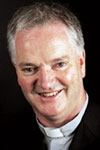 gracious, Mons. Paul Tighe who serves as the Secretary for The Pontifical Council for Social Communication. The Council was hosting a gathering of bloggers from around the world in order to begin a dialogue concerning the varied aspects of the new media, and in particular the role of the blogger in the new evangelization. This meeting was held on May 2 in Rome, the day after the beatification of Blessed John Paul II, the herald of this “New Evangelization”. What will this “New Evagnelization” look like in the light of technological advancements? How will the various forms of “traditional” media converge to effectively communicate the message? Who is the “Catholic blogger” and what is the hoped for behavior of the new evanglizer? How can those seeking find Truth on the internet? What (or better yet Who) is Truth? These questions and so many more are discussed with Mons Tighe in this special edition of “Inside the Pages”.
gracious, Mons. Paul Tighe who serves as the Secretary for The Pontifical Council for Social Communication. The Council was hosting a gathering of bloggers from around the world in order to begin a dialogue concerning the varied aspects of the new media, and in particular the role of the blogger in the new evangelization. This meeting was held on May 2 in Rome, the day after the beatification of Blessed John Paul II, the herald of this “New Evangelization”. What will this “New Evagnelization” look like in the light of technological advancements? How will the various forms of “traditional” media converge to effectively communicate the message? Who is the “Catholic blogger” and what is the hoped for behavior of the new evanglizer? How can those seeking find Truth on the internet? What (or better yet Who) is Truth? These questions and so many more are discussed with Mons Tighe in this special edition of “Inside the Pages”.
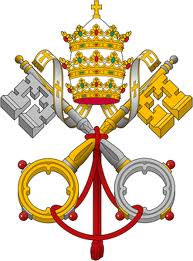 Learn more about the work of the Ponitfical Council for Social Communication at www.pccs.va
Learn more about the work of the Ponitfical Council for Social Communication at www.pccs.va
[powerpress]
Tags: blogger, catholic, catholic podcast, catholic prayer, cathollc spirituality, Mons Tighe, Monsignor Paul Tighe, New Evagnelization, new evangelization, Paul Tighe, pontifical council, Pontifical Council for Social Communication, Pontifical Council for Social Communications, Social Communication, social communications, work
This entry was posted on Wednesday, May 4th, 2011 at 6:12 am
You can follow any responses to this entry through the RSS 2.0 feed.
“Introduction to Christianity” by Cardinal Joseph Ratizinger (Pope Benedict XVI) is a modern day classic! Fr. Joseph Fessio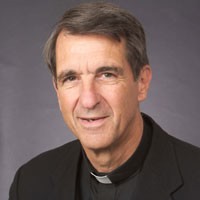 S.J., founder of Ignatius Press and student of Pope Benedict, joins us to break open the gift of insight and wisdom contained in this inspirational work of our Holy Father. As the Pope Benedict states in the preface in the 2nd edition of the book, that approach, taken in the book, puts the question of God and the question about Christ in the very center, which leads to a “narrative Christology” and demonstrates that the place for faith is in the Church. It is an excellent edition to all Christian libraries and a must for anyone seeking a richer appreciation of the teachings of faith. Pope Benedict uses the Old and New Testament, the teachings of the Fathers of the Church and generations of Saints, as well as the beauty of the Church’s Tradition to ponder the reality of Christ. It’s beautiful!
S.J., founder of Ignatius Press and student of Pope Benedict, joins us to break open the gift of insight and wisdom contained in this inspirational work of our Holy Father. As the Pope Benedict states in the preface in the 2nd edition of the book, that approach, taken in the book, puts the question of God and the question about Christ in the very center, which leads to a “narrative Christology” and demonstrates that the place for faith is in the Church. It is an excellent edition to all Christian libraries and a must for anyone seeking a richer appreciation of the teachings of faith. Pope Benedict uses the Old and New Testament, the teachings of the Fathers of the Church and generations of Saints, as well as the beauty of the Church’s Tradition to ponder the reality of Christ. It’s beautiful!
[powerpress]
For more information on this work as well as all the books by Joseph Cardinal Ratzinger (Pope Benedict XVI), go to www.ignatius.com
Tags: cardinal joseph ratizinger, catholic, catholic podcast, catholic prayer, cathollc spirituality, christian classic, Church, faith, ignatius press, introduction to christianity, joseph cardinal ratzinger, joseph fessio, pope benedict, pope benedict xvi, work
This entry was posted on Monday, April 4th, 2011 at 10:24 am
You can follow any responses to this entry through the RSS 2.0 feed.
“The Handbook for Catholic Moms” just about has it all (and I don’t say that lightly). Whether you’re a stay at home mom,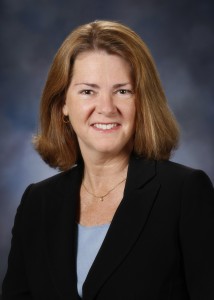 out in the work world, or one who’s nest is empty, this book has a bounty of shared experience, how-to’s, and a host of helpful spiritually nurturing helps and guides for every area of life. It’s solidarity for the Catholic mom! Lisa Hendey deserves high praise and thanks for being one of the first to venture out into the “digital sea”. She serves as a fine navigator, helping us all learn how to navigate in the ever more complicated world we now find ourselves living in. Practical, spiritual, fun, and well worth it, “The Handbook for Catholic Moms” is more than a resource, it’s a companion on the journey. Visit CatholicMom.com, it’s great!
out in the work world, or one who’s nest is empty, this book has a bounty of shared experience, how-to’s, and a host of helpful spiritually nurturing helps and guides for every area of life. It’s solidarity for the Catholic mom! Lisa Hendey deserves high praise and thanks for being one of the first to venture out into the “digital sea”. She serves as a fine navigator, helping us all learn how to navigate in the ever more complicated world we now find ourselves living in. Practical, spiritual, fun, and well worth it, “The Handbook for Catholic Moms” is more than a resource, it’s a companion on the journey. Visit CatholicMom.com, it’s great!
[powerpress]
Tags: ave maria press, catholic, catholic moms, catholic podcast, catholic prayer, cathollc spirituality, Lisa Hendey, work
This entry was posted on Monday, March 7th, 2011 at 4:56 am
You can follow any responses to this entry through the RSS 2.0 feed.
Part 2…What a fantastic book, what a fantastic (and fun) interview with Dr. Brant Pitre, discussing “Jesus and the Jewish 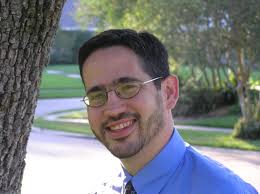 Roots of the Eucharist”. This book has what it takes to become a classic, similiar in importance as Dr. Scott Hahn’s “The Lamb’s Supper”!
Roots of the Eucharist”. This book has what it takes to become a classic, similiar in importance as Dr. Scott Hahn’s “The Lamb’s Supper”!
The description from the book says it best….“Jesus and the Jewish Roots of the Eucharist shines fresh light on the Last Supper by looking at it through Jewish eyes. Using his in-depth knowledge of the Bible and ancient Judaism, Dr. Brant Pitre answers questions such as: What was the Passover like at the time of Jesus? What were the Jewish hopes for the Messiah? What was Jesus’ purpose in instituting the Eucharist during the feast of Passover? And, most important of all, what did Jesus mean when he said, “This is my body… This is my bloodâ€?
To answer these questions, Pitre explores ancient Jewish beliefs about the Passover of the Messiah, the miraculous Manna from heaven, and the mysterious Bread of the Presence. As he shows, these three keys—the Passover, the Manna, and the Bread of the Presence—have the power to unlock the original meaning of the Eucharistic words of Jesus. Along the way, Pitre also explains how Jesus united the Last Supper to his death on Good Friday and his Resurrection on Easter Sunday.
Inspiring and informative, Jesus and the Jewish Roots of the Eucharist is a groundbreaking work that is sure to illuminate one of the greatest mysteries of the Christian faith: the mystery of Jesus’ presence in “the breaking of the bread.â€
[powerpress]
and be sure to check out Dr. Brant Pitre’s excellent website!
Tags: ancient judaism, brant pitre, catholic, catholic podcast, catholic prayer, cathollc spirituality, doubleday religion, eucharist, Jesus, mysteries, work
This entry was posted on Monday, February 14th, 2011 at 7:58 am
You can follow any responses to this entry through the RSS 2.0 feed.
What a fantastic book, what a fantastic (and fun) interview with Dr. Brant Pitre, discussing “Jesus and the Jewish  Roots of the Eucharist”. This book has what it takes to become a classic, similiar in importance as Dr. Scott Hahn’s “The Lamb’s Supper”!
Roots of the Eucharist”. This book has what it takes to become a classic, similiar in importance as Dr. Scott Hahn’s “The Lamb’s Supper”!
The description from the book says it best….“Jesus and the Jewish Roots of the Eucharist shines fresh light on the Last Supper by looking at it through Jewish eyes. Using his in-depth knowledge of the Bible and ancient Judaism, Dr. Brant Pitre answers questions such as: What was the Passover like at the time of Jesus? What were the Jewish hopes for the Messiah? What was Jesus’ purpose in instituting the Eucharist during the feast of Passover? And, most important of all, what did Jesus mean when he said, “This is my body… This is my bloodâ€?
To answer these questions, Pitre explores ancient Jewish beliefs about the Passover of the Messiah, the miraculous Manna from heaven, and the mysterious Bread of the Presence. As he shows, these three keys—the Passover, the Manna, and the Bread of the Presence—have the power to unlock the original meaning of the Eucharistic words of Jesus. Along the way, Pitre also explains how Jesus united the Last Supper to his death on Good Friday and his Resurrection on Easter Sunday.
Inspiring and informative, Jesus and the Jewish Roots of the Eucharist is a groundbreaking work that is sure to illuminate one of the greatest mysteries of the Christian faith: the mystery of Jesus’ presence in “the breaking of the bread.â€
and be sure to check out Dr. Brant Pitre’s excellent website!
Tags: brant pitre, catholic, catholic podcast, catholic prayer, cathollc spirituality, doubleday religion, feast of passover, Jesus, jewish roots, last supper, manna from heaven, mysteries, work
This entry was posted on Friday, February 11th, 2011 at 12:38 am
You can follow any responses to this entry through the RSS 2.0 feed.
Episode 1 – Regnum Novum: Bringing forth the New Evangelization through Catholic Social Teaching with Omar Guiterrez – Introduction and Value # 1 – Jesus Christ
– Introduction and Value # 1 – Jesus Christ
Discerning Hearts is blessed to present Omar F. A. Guiterrez, M.A. , Special Assistant  to Archbishop George Lucas of the Archdiocese of Omaha, in a groundbreaking series which breaks open the heart of Catholic Social Doctrine.
[powerpress]
We encourage you to visit “Regnum Novum – A New Kingdom: AÂ Revolution” Omar Guiterrez’s blog site
 We live at a very special time. The confluence of many things has brought forth the clear need to be able to articulate the Social Teaching of the Catholic Church in a way that is accessible and applicable. This is not to be an effort where high-minded theories are to be bandied about. Rather, this is a time of opportunity wherein we can apply the Social Doctrine to the concrete so as to bring about a New Kingdom, a Revolution. – Omar G. from Regnum Novum
We live at a very special time. The confluence of many things has brought forth the clear need to be able to articulate the Social Teaching of the Catholic Church in a way that is accessible and applicable. This is not to be an effort where high-minded theories are to be bandied about. Rather, this is a time of opportunity wherein we can apply the Social Doctrine to the concrete so as to bring about a New Kingdom, a Revolution. – Omar G. from Regnum Novum
From episode … 1.     Jesus Christ
You may not believe how many advocates of social justice are only too ready to chuck Jesus out the window in order to get you to buy their plan. One such program of which I’m familiar actually includes materials that deny the divinity of Christ, several times, and deny the salvific work of the cross. As Pope Paul VI and Pope Benedict XVI have said, the Social Doctrine is evangelization. If it is not rooted in the truth, then it can be manipulated to mean whatever one wants it to mean. The truth is quite simply, Jesus Christ who, as Gaudium et spes states, reveals man to himself. The Social Doctrine and the work of charity must stem from an intimate knowledge of Jesus Christ so that they might serve the whole person and point back to Christ.
Also visit Omar’s “Discerning Hearts” page Catholic Social Teaching 101
Tags: catholic, catholic podcast, catholic prayer, catholic social doctrine, catholic social justice, catholic social teaching, cathollc spirituality, jesus christ, new evangelization, Omar Guiterrez, social doctrine, truth, work
This entry was posted on Friday, November 12th, 2010 at 4:39 pm
You can follow any responses to this entry through the RSS 2.0 feed.
“Supremacy and Survival: How Catholics Endured the English Reformation” is an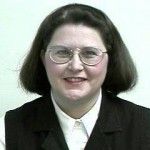 outstanding introduction to the persecution of Catholics began in 16th century England. Lasting over 250 years, the effects can still be felt in some ways even in today’s world. But through the witness of great saints such as St. Thomas More and St. John Fisher to Blessed John Henry Newman, Catholics in England, as well as throughout the rest of the world, have been encouraged and inspired to continue standing for the truths found in the Catholic Church, which ultimately reflect the great Truth, who is Our Lord and Savior Jesus Christ. Stephanie Mann does a beautiful job of presenting this period and many of those heroic lives in her work.
outstanding introduction to the persecution of Catholics began in 16th century England. Lasting over 250 years, the effects can still be felt in some ways even in today’s world. But through the witness of great saints such as St. Thomas More and St. John Fisher to Blessed John Henry Newman, Catholics in England, as well as throughout the rest of the world, have been encouraged and inspired to continue standing for the truths found in the Catholic Church, which ultimately reflect the great Truth, who is Our Lord and Savior Jesus Christ. Stephanie Mann does a beautiful job of presenting this period and many of those heroic lives in her work.
To learn more visit Stephanie Mann’s website
[powerpress]
Tags: 16th century, catholic, catholic church, catholic podcast, catholic prayer, cathollc spirituality, england, english reformation, John Fisher, john henry newman, st john fisher, st thomas more, Stephanie Mann, work
This entry was posted on Tuesday, October 12th, 2010 at 4:14 am
You can follow any responses to this entry through the RSS 2.0 feed.

